Coronavirus – Emergency Food Aid
The whole world is suffering from the COVID-19 crisis and the lockdown put in place have had a very negative impact on those most […]
Schools have been closed and the local economies have been very badly hit; thousands of people have died of hunger. Numerous crises have been brought to our attention. We are doing all we can to respond, delivering emergency food aid projects, and putting in place measures intended to prevent pupils from dropping out of school.
While the challenges relating to food supply and educational provision are already clear, significant, longer-term political and economic problems are also emerging, like increases in the price of agricultural commodities, and almost total collapse of tourIsm. These will take years to resolve, further deepening every month the already huge divide between rich and poor. According to data from the World Health Organisation (WHO), Vietnam, Thailand, Laos and Cambodia have been exceptionally successful in controlling the spread of the virus. But a second wave that has been building in Southeast Asia since the beginning of the year has resulted in a sharp increase in the number of cases in the region, despite the fact that a vaccination programme is now underway.

Many of our Covid projects take the form of emergency food supply
Lots of insecure jobs have been badly hit by the pandemic (manual workers, day labourers, anyone involved in tourism). We have provided support to 2,607 families in Cambodia, some with sponsored children and some without.
Since the start of 2021, we have mainly focused on students and on families with young children, supplying food and helping to finance construction work on their homes.
Cambodia has reported few Covid cases despite the weakness of the health service and the slow initial response to the pandemic. It has no doubt been helped by its geographical location, surrounded as it is by Vietnam, Laos and Thailand, all countries which have controlled the virus relatively well. But it is one of a number of countries where it is worrying to see the government using the pandemic as an excuse to take new repressive measures (introducing mass surveillance, controlling the media, restricting freedom of association).
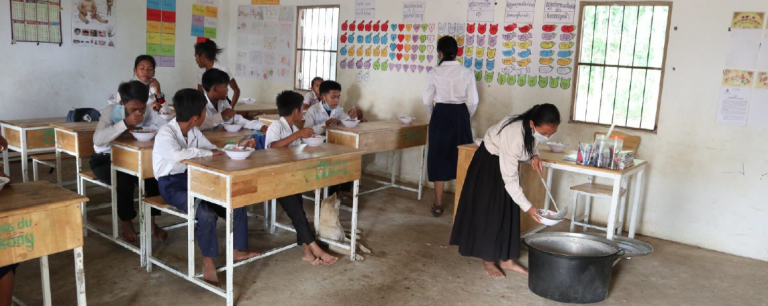
A class in Cambodia during lunch hour
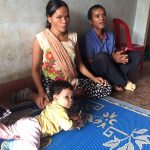
Covid distribution in various minority programmes
Despite having very little in the way of a health service, Laos has escaped the worst of the pandemic. Its demography and geography could both be relevant factors.
Population density is low, and neighbouring countries have all controlled the virus relatively well. However, the opaque nature of its political system and of the local media means that there is a lack of clarity about a number of aspects of the country’s response.
Myanmar is the country in which we are running the most projects, taking the form either of the supply of emergency food aid or of measures intended to prevent pupils from dropping out of school.
Our local managers are doing all they can to help people who were hit by a military coup on 1 February and are now feeling its economic consequences, as well as the effects of the pandemic.
Until last August the Covid infection rate in Myanmar was one of the lowest in the region, but it has increased rapidly over the last few months.
Shortcomings in the health service have hampered the national response, which has been further complicated by the coup, as lots of front-line health workers have downed tools to join thousands of their fellow citizens in campaigns of civil disobedience to protest against the military regime. Food and petrol prices have rocketed since the coup, while internet blackouts and violent suppression of dissent have further weakened an economy that had already been damaged by the pandemic.
Covid has also highlighted the lack of protection enjoyed by certain sectors of the population, notably the hundreds of thousands who have been internally displaced by the ethnic conflicts that beset the country.
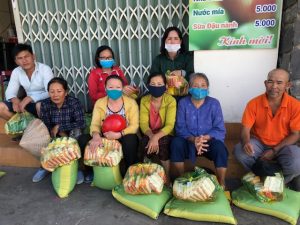

The Philippines have reported the second-highest number of cases in Southeast Asia, after Indonesia. Since March the number of new cases has rocketed. Protest against job losses and food shortages have broken out all over the country, despite an official clampdown on displays of dissent. Although it is not surprising, the response to the pandemic of President Duterte – who has declared, amongst other things, that anyone who breaches lockdown risks being shot on sight – and his ability to use emergency powers have complicated the way in which the government response is seen, while the protests, and particularly those originating in the shanty towns, have drawn attention to the lack of social care.
There were few cases in Thailand until a recent surge – a surge to which the country has responded well. With its excessive dependence on tourism and on exports, Thailand has nonetheless suffered economically more than any other country in the region, one of the factors contributing to the pro-democracy demonstrations in Bangkok. Highlighting the increased risk that they bring of spreading the virus, the government – which has been controlled by the military since the coup of 2014 – has clamped down on these protests. But there are fears that it will use Covid emergency powers to censor the press and suppress the opposition. There is also controversy about the monarchy; the king is apparently in self-isolation in a luxury hotel in Germany.
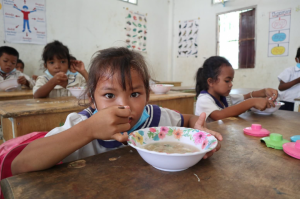
Distribution of food aid in Thailand under the auspices of project Covid
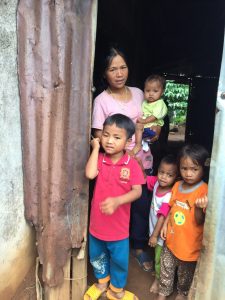
A Vietnamese family receiving food aid
Vietnam is the region’s biggest success story. Despite its limited resources and a very busy border with China, Vietnam has managed to contain the virus. The economy has held up extraordinarily well. Vietnam is the only country in Southeast Asia that is expected to show economic growth in 2020. But the response of the government has intensified concern about abuse of democracy and human rights, with increased surveillance of activists, and arrests made in response to malicious accusations.
SOURCES
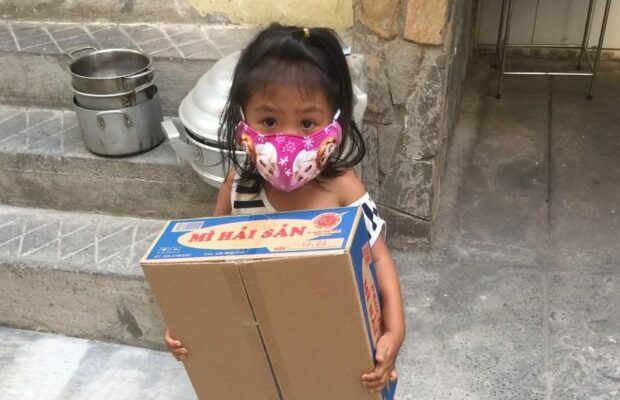
The whole world is suffering from the COVID-19 crisis and the lockdown put in place have had a very negative impact on those most […]
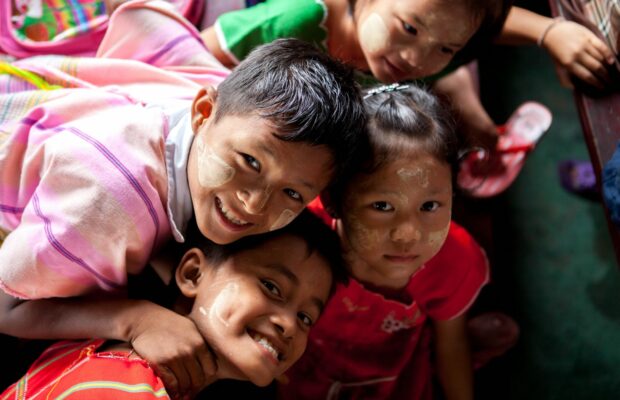
Thanks to our local volunteers, any alarming situations on the field have quickly been reported to us during this pandemic. The COVID-19 emergency food […]